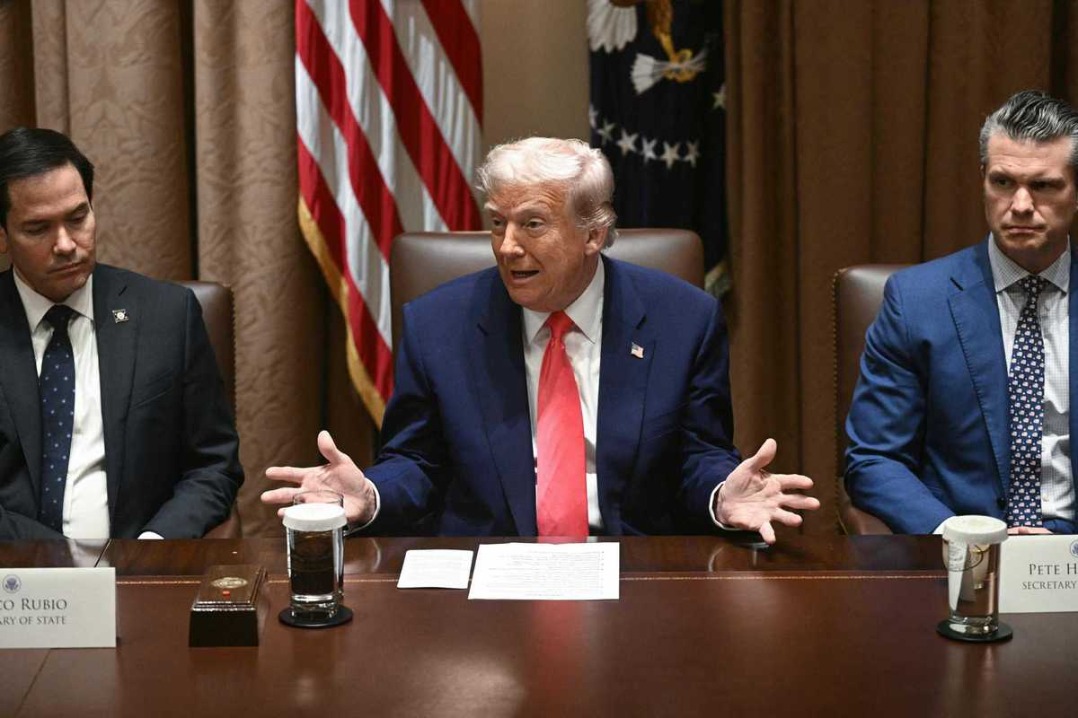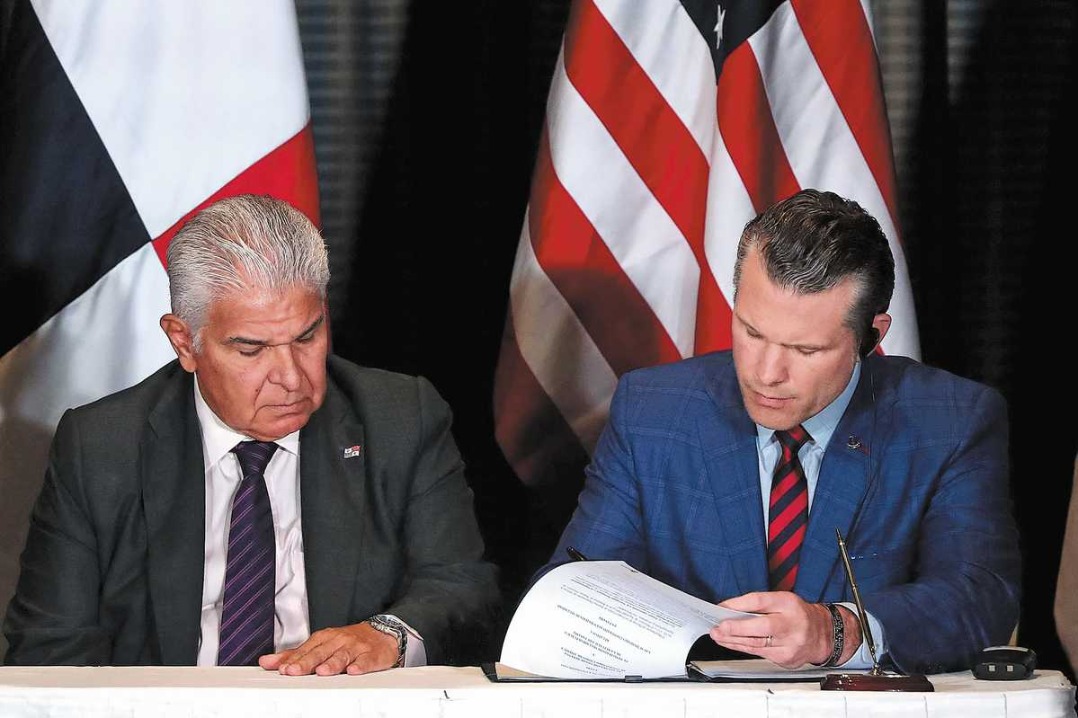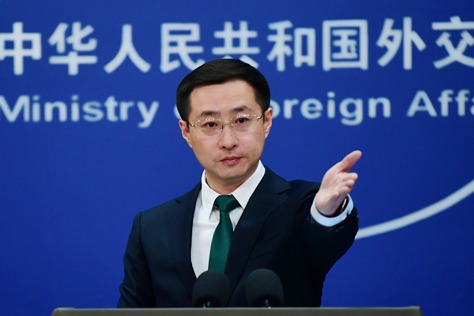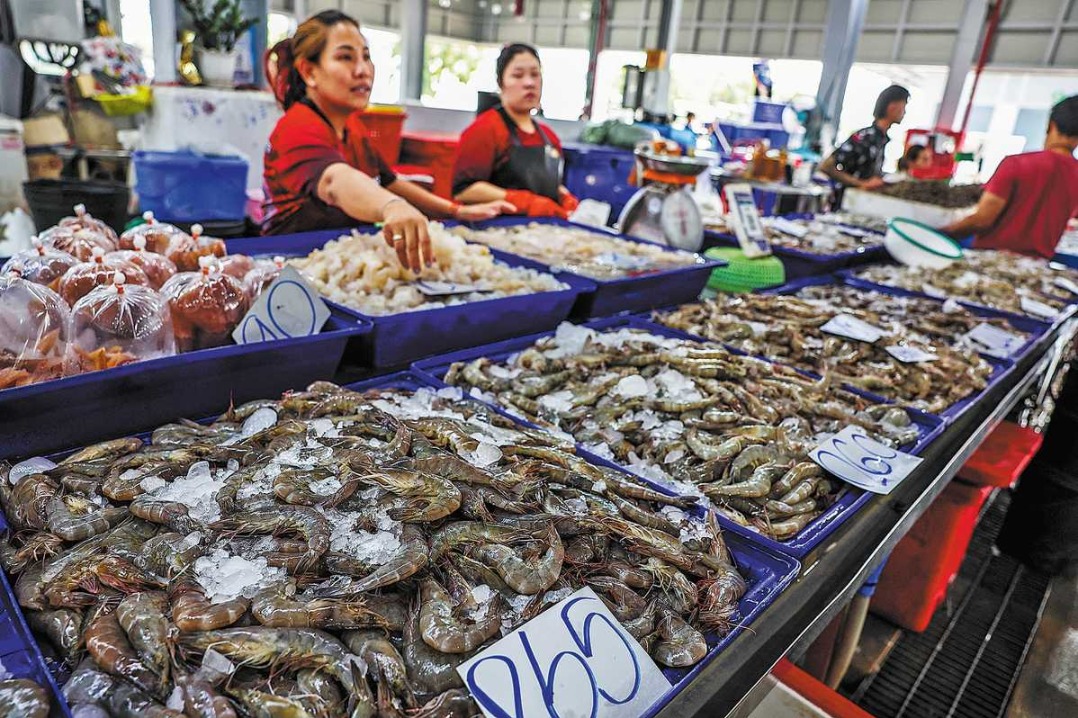Experts urge deeper Beijing-Tokyo-Seoul cooperation


As the United States' "tariff war "piles pressure on the global economy, experts say China, Japan and South Korea must unite through deeper cooperation and conclude a free trade agreement, or FTA, as soon as possible to promote regional stability and prosperity.
It is "extremely important" that the three major Asian countries "enhance communication and seek solutions to shared challenges", said Kazuyuki Hamada, an international political economist and Japan's former parliamentary vice-minister for foreign affairs.
Their cooperation will benefit not only Asia but the entire world, serving as a compass for global progress, Hamada told China Daily, noting US actions have infringed on FTAs and sparked a backlash from many countries.
At a meeting in the South Korean capital Seoul on March 30, economic and trade ministers from China, Japan and South Korea agreed to expedite negotiations on their trilateral FTA and enhance cooperation in supply chain management and export controls, according to the Chinese Ministry of Commerce.
The idea of the countries establishing a free trade zone was first proposed in 2002, with 16 rounds of negotiations held since 2013.
On April 2, US President Donald Trump announced "reciprocal tariffs", imposing a 10 percent "minimum baseline tariff" and higher rates on certain trading partners, including China (34 percent), Japan (24 percent) and South Korea (25 percent). He further increased the tariff for imports from China to 125 percent on Wednesday.
Trump earlier announced a 25 percent tariff on imports of automobiles and some auto parts.
Noting that the US is the biggest automotive export destination for Japan and South Korea, Oxford Economics estimated on Monday that both Asian countries' auto production will shrink by about 7 percent as a result of the tariff hikes, with the impact likely to hit total industrial output.
Going against trend
Hidetoshi Tashiro, chief economist at Japanese consultancy Infinity LLC, told China Daily that by implementing protectionist trade policies and undermining free trade, the US is going against the global economic trend.
"Japan, China and South Korea must promptly conclude an FTA to protect the economies of the three countries from the storm of Trumpera tariffs," said Tashiro.
To ensure the FTA is free, fair, high-quality and mutually beneficial, Tashiro said it is important to prearrange a follow-up agreement that includes intellectual property rights protection partnerships. The three nations should also establish a structured dialogue framework, he said.
This includes regular quarterly meetings of economic ministers on a rotating basis, alongside frequent working-level discussions to enhance information-sharing and build stronger interpersonal ties among officials. Such institutionalized cooperation will be key to the FTA's long-term success, Tashiro added.
The trilateral FTA has faced delays due to trade imbalance fears, with South Korea worried about deficits with Japan, Japan seeking to protect its surplus and both fearing China will gain disproportionately, said Kim Dong-ha, a professor of Chinese studies at Busan University of Foreign Studies.
"South Korea already signed an FTA with China in 2015, reducing momentum for signing the trilateral FTA," Kim told China Daily.
However, trade balances have improved, with South Korea's trade deficit with Japan falling to $18 billion last year from $20 billion in 2014, while China's deficit with South Korea halved to $35 billion over the same period, said Kim.
"The three countries should make good use of the Regional Comprehensive Economic Partnership experience values," said Kim, noting that the success of the RCEP — of which China, Japan and South Korea are all members — provided a testing ground for trilateral cooperation.
Kim said it is also necessary to allow the Trilateral Cooperation Secretariat to perform more economic functions for closer cooperation.
With South Korea set to elect a new president in June, the new leadership must address ties with China using a different approach, said Korea-China Exchange Promotion Committee Chairman Lee Chang-ho.
"Enhancing ties with China through a multilateral foreign policy can help South Korea tackle challenges such as US tariffs and contribute to stabilizing the global economy," Lee said, adding that cooperation with Japan is also essential.
Political economist Hamada added that Japan, China and South Korea should also cooperate with the Association of Southeast Asian Nations and the Global South to build a system of interdependence in economic and cultural spheres, not based on US-centric unilateralism but on the vision of a shared future for mankind.
Contact the writers at kelly@chinadailyapac.com

































